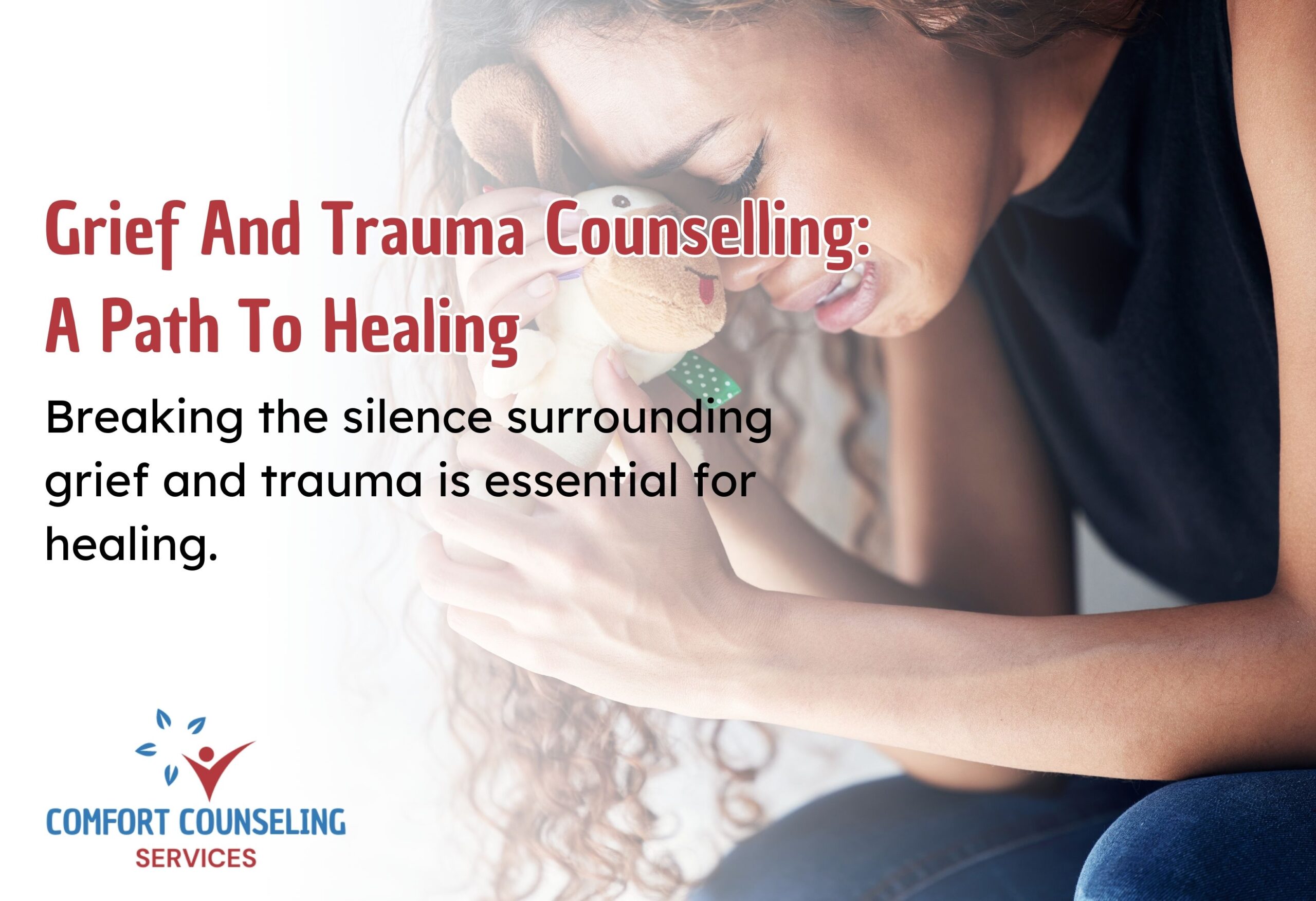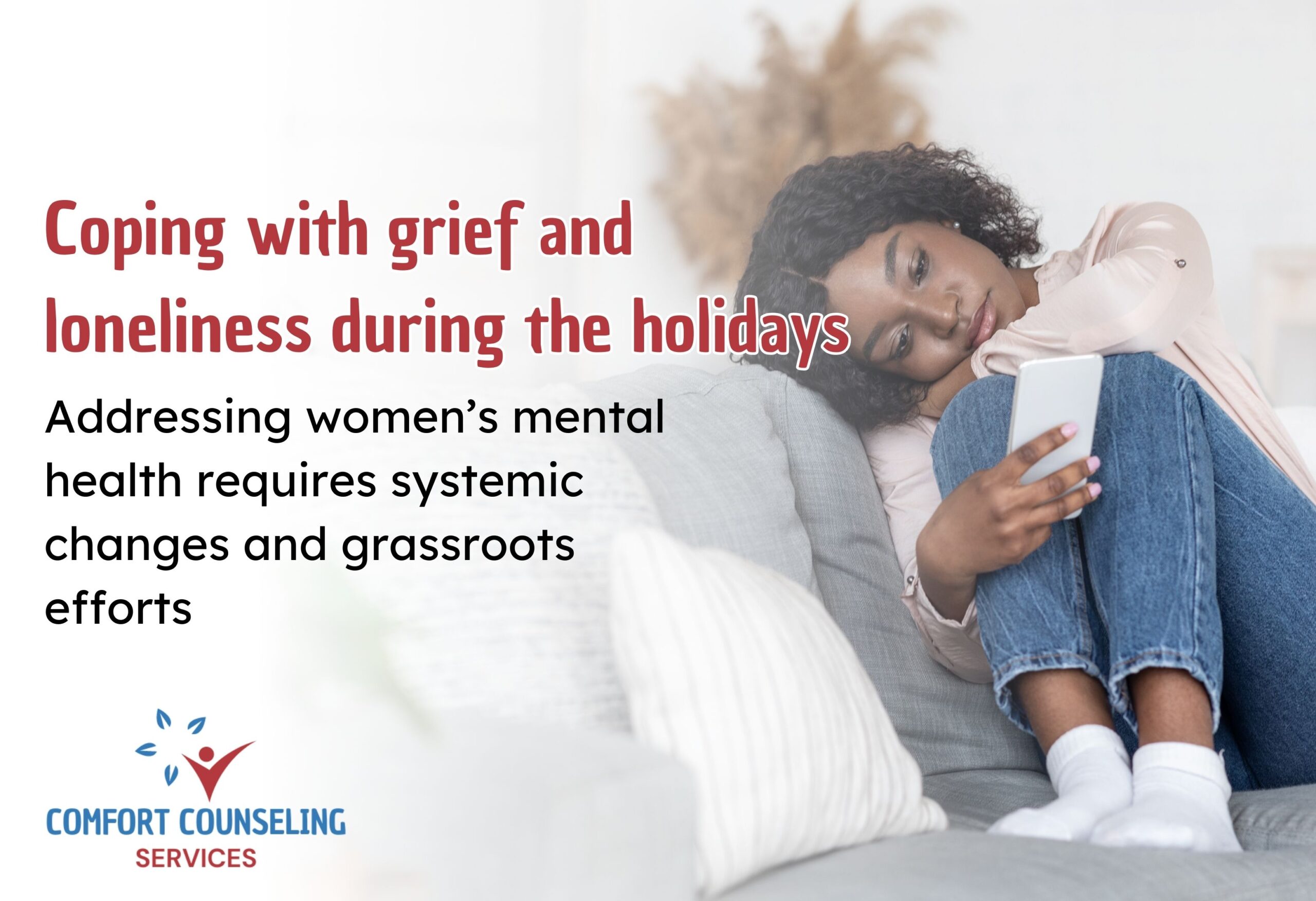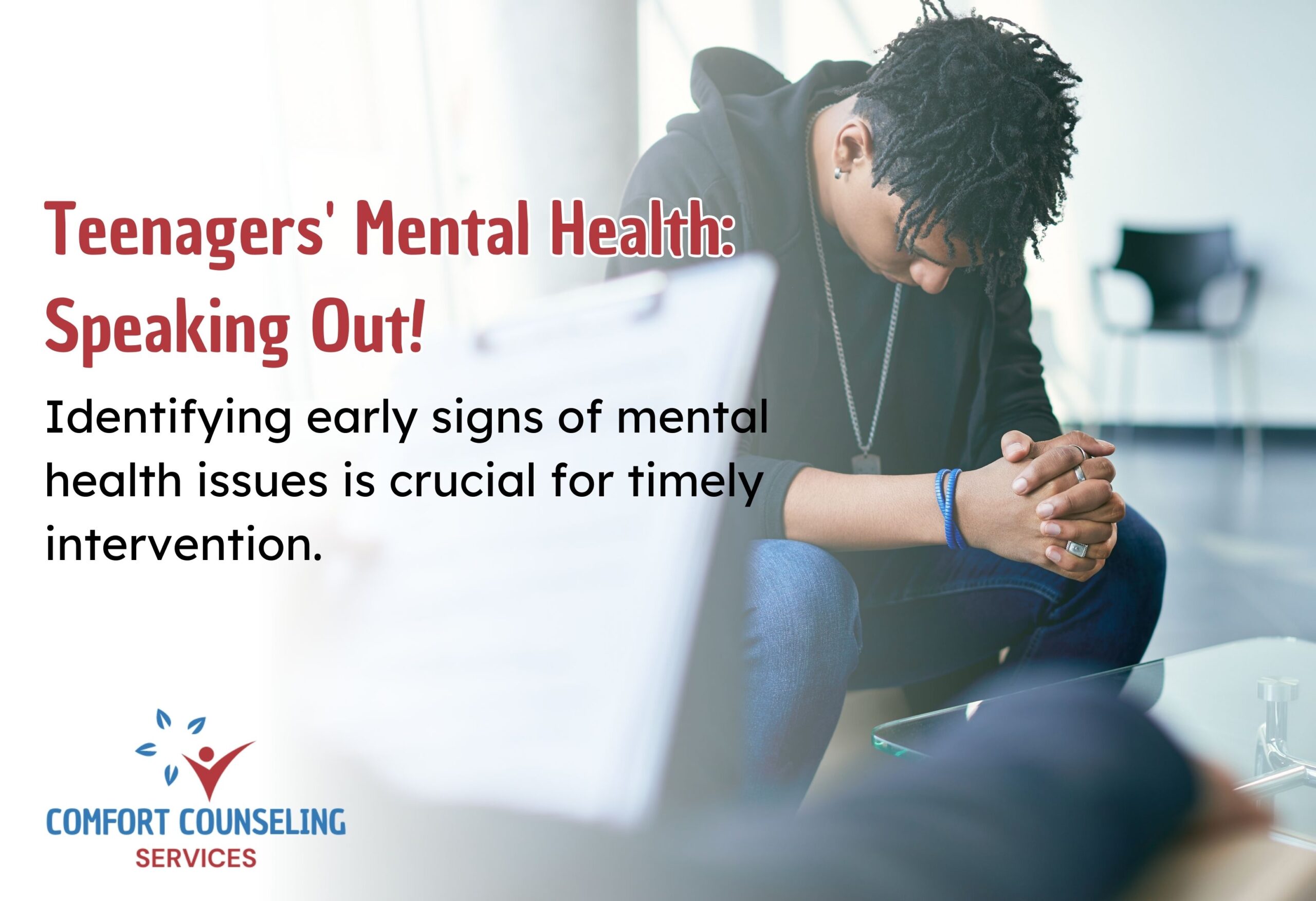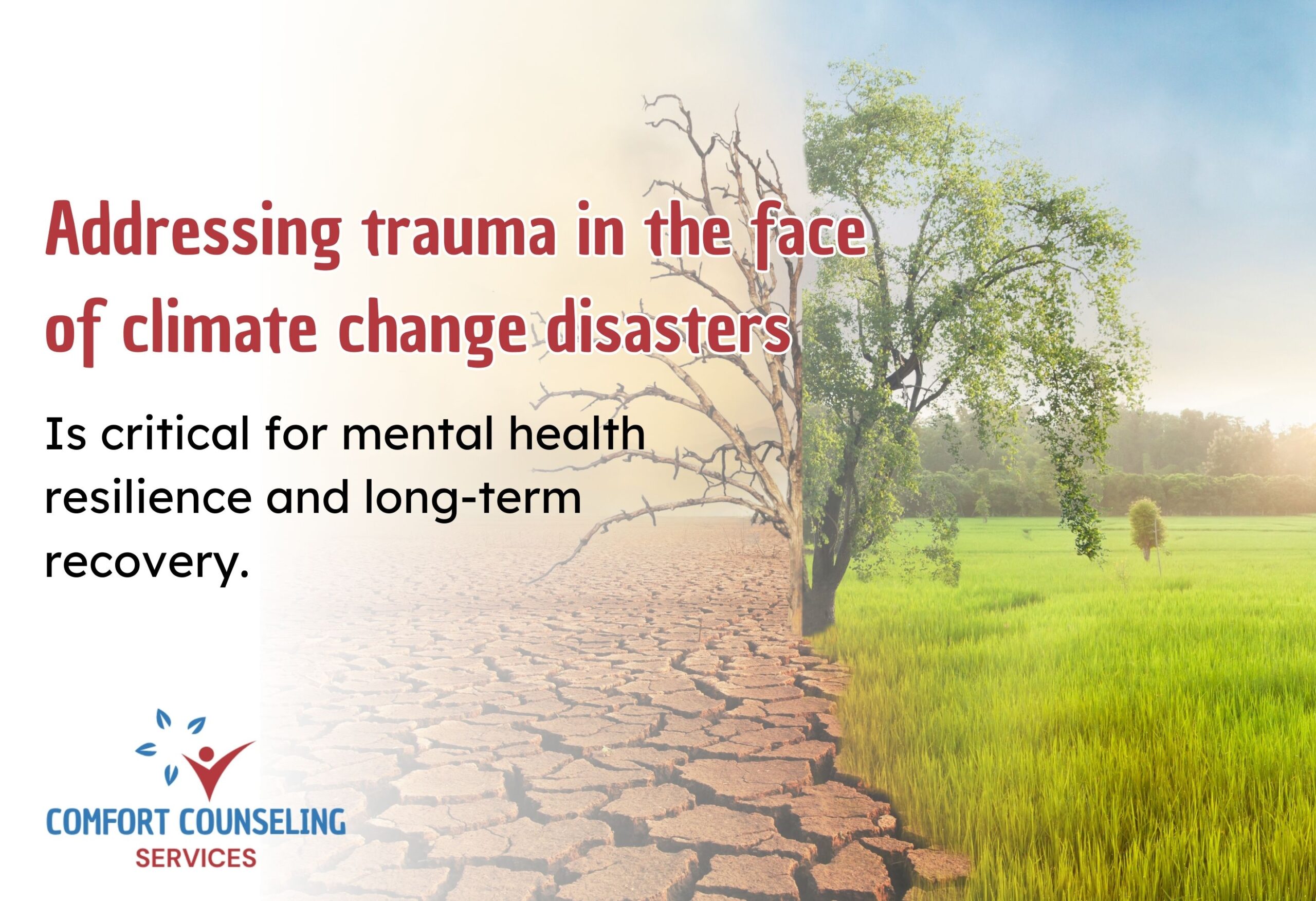Grief and trauma are profound emotional experiences that can significantly impact a person’s mental health, relationships, and daily life. Grief often arises from loss, such as the death of a loved one, while trauma stems from distressing events like accidents, abuse, or natural disasters. Counseling for grief and trauma offers individuals the tools to process these emotions and reclaim their lives.
Understanding grief and trauma
Grief is the natural response to loss, encompassing emotions like sadness, anger, guilt, and despair (Worden, 2018). It can manifest in physical symptoms such as fatigue, insomnia, or changes in appetite.
Trauma refers to the emotional and psychological response to a deeply distressing event. Symptoms include flashbacks, anxiety, difficulty concentrating, and emotional numbness (American Psychological Association, 2022).
Both grief and trauma can lead to long-term mental health challenges if unaddressed, including depression, anxiety disorders, and post-traumatic stress disorder (PTSD).
The role of grief and trauma counseling
Counseling provides a supportive environment where individuals can:
- Process their emotions safely and constructively.
- Learn coping mechanisms to deal with triggers.
- Reframe negative thought patterns associated with loss or trauma.
Evidence-based approaches such as Cognitive Behavioral Therapy (CBT) and Eye Movement Desensitization and Reprocessing (EMDR) are effective in treating trauma-related disorders (Shapiro, 2017).
Common Techniques in grief and trauma counseling
- Cognitive Behavioural Therapy (CBT): Identifies and challenges negative thoughts and behaviours (Beck, 1993).
- Narrative therapy: Encourages individuals to rewrite their story, focusing on strength and resilience (White & Epston, 1990).
- Mindfulness and relaxation techniques: Help individuals stay present and manage anxiety.
- EMDR therapy: A structured technique to process traumatic memories and reduce their emotional intensity.
- Support groups: Provide a sense of community and shared understanding among individuals experiencing similar struggles.
Phases of grief and trauma counseling
- Assessment: Understanding the individual’s experiences and emotional state.
- Stabilization: Building emotional and psychological resilience.
- Processing: Exploring and addressing painful memories or emotions.
- Integration and Growth: Helping the individual find meaning and rebuild their life.
The importance of grief and trauma counseling
- Preventing complications: Counseling can reduce the risk of developing chronic mental health conditions like PTSD or depression.
- Promoting emotional healing: It provides a safe space for expressing and processing feelings.
- Rebuilding relationships: Individuals learn to communicate their needs and re-establish trust.
- Empowering growth: Counseling helps individuals find meaning and purpose after their experiences.
Studies show that trauma-focused therapies are associated with a 60-80% improvement rate in PTSD symptoms (Bisson et al., 2013).
Challenges in seeking counseling
Despite its benefits, individuals often face barriers to seeking counseling:
- Stigma: Many fear being judged or misunderstood.
- Access: Limited availability of mental health services in some areas.
- Cost: Financial constraints can make therapy unaffordable for some.
Addressing these challenges requires societal efforts to promote awareness and improve access to mental health services.
Breaking the silence around grief and trauma
Breaking the silence surrounding grief and trauma is essential for healing. Public education campaigns, community support groups, and mental health advocacy are critical for fostering an environment where individuals feel safe seeking help.
Conclusion
Grief and trauma counseling is an essential component of mental health care, offering individuals the tools they need to process their emotions, overcome challenges, and rebuild their lives. By addressing these issues holistically, counselors help individuals not only survive but thrive in the face of adversity.
References
- American Psychological Association. (2022). Understanding trauma. Retrieved from www.apa.org
- Beck, A. T. (1993). Cognitive therapy of substance abuse. Guilford Press.
- Bisson, J. I., et al. (2013). Psychological treatments for chronic PTSD. Cochrane Database of Systematic Reviews.
- Shapiro, F. (2017). Eye movement desensitization and reprocessing (EMDR) therapy. Guilford Publications.
- White, M., & Epston, D. (1990). Narrative means to therapeutic ends. Norton.
- Worden, J. W. (2018). Grief counseling and grief therapy: A handbook for the mental health practitioner. Springer Publishing.



